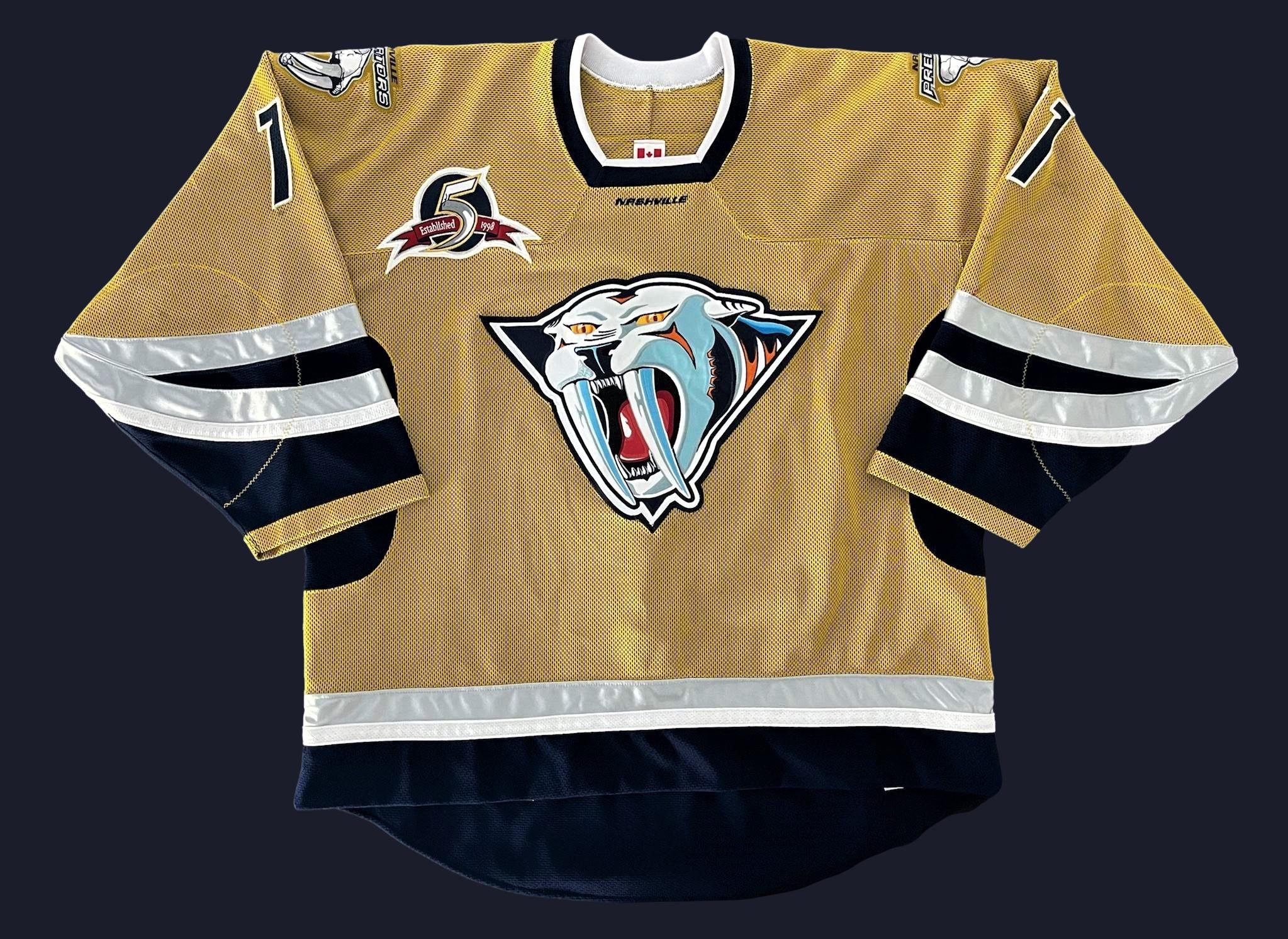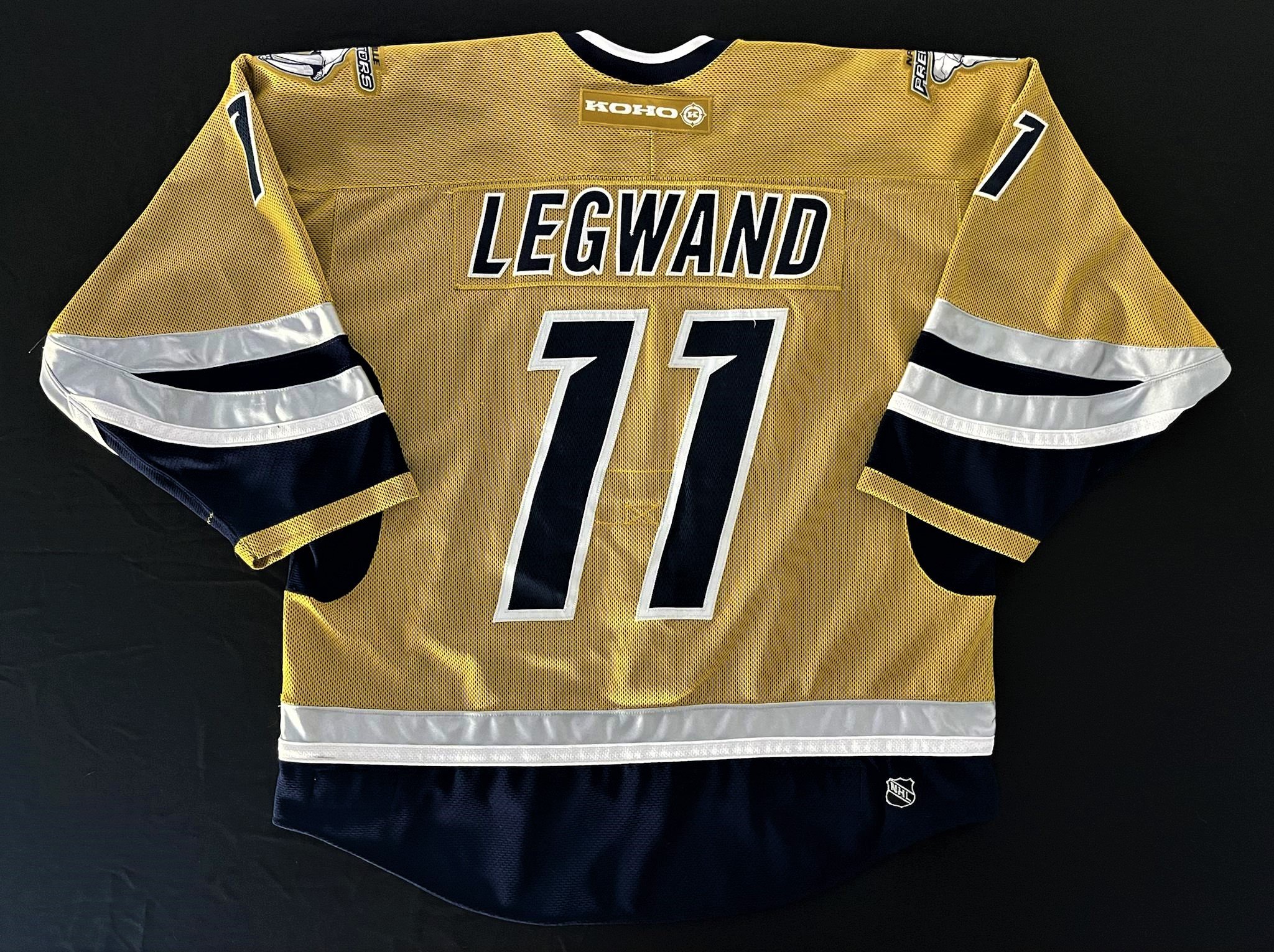David Legwand dominates the Nashville Predators record books in many statistical categories.
The original Predator owns franchise records in games played, goals, assists, points, and game winning goals.
As the first draft pick in club history, a lot of the Preds’ early expectations were planted firmly on #11’s shoulders. While he never quite lived up to his billing as the second overall pick in the 1998 draft, his career was more than serviceable and arguably might have reached a higher level if he’d have had more talent around him like he did in 2006-2007.
Nashville wore its polarizing mustard jerseys for the first time in 2001-2002, and wore them in 14 games in the 2002-2003 season. They split those 14 games into two sets with 7 games each.
David Legwand wore his jersey in 5 of those 7 contests, scoring 3 goals and 2 assists to average a point per game in the sweater. He did not dress for the last two games of the set (3/17 & 3/25).
Leggy’s jersey has solid wear for a mustard game worn. They aren’t known for showing wear very well.
The right sleeve has some marks in the silver near the wrist, as well as a faint mark and pull up near the sleeve numbers. There is also another mark just below the sleeve numbers. The left sleeve has post paint transfer extending from the silver band into the mustard area below the sleeve numbers. There is a dark mark in the white band below the silver at the wrist as well. There are several prominent stick and puck marks near the numbers on this sleeve, and they have led to the majority of the photomatches for this sweater.
The front of the sweater has some faint marking below the crest, and of course features the Nashville Predators huge 5th Anniversary patch on the right breast. The back is clean bar a few loose threads on the numbering.
The glacial twill used on this jersey really pops, and it has both MeiGray and Cutting Edge Sports tagging.
Leggy scored 17 goals and 31 assists in 64 games in 2002-2003.
Legwand spent 15 years in Nashville growing hockey. Ironically, he was traded to the Detroit Red Wings just one season before the team really begin to take off with a surge of popularity and success starting in 2014-2015.
While Legwand was an integral part of “Smashville”, he was never beloved in the way a Shea Weber or Pekka Rinne or even Filip Forsberg is. He was a good, but not great player who played on a lot of average to above average teams.
Who knows where his career might have gone if the offensive weapons around him would’ve been better throughout his first several seasons?
What we do know is that he gave 15 solid years to the franchise and he holds the records to prove it.





















